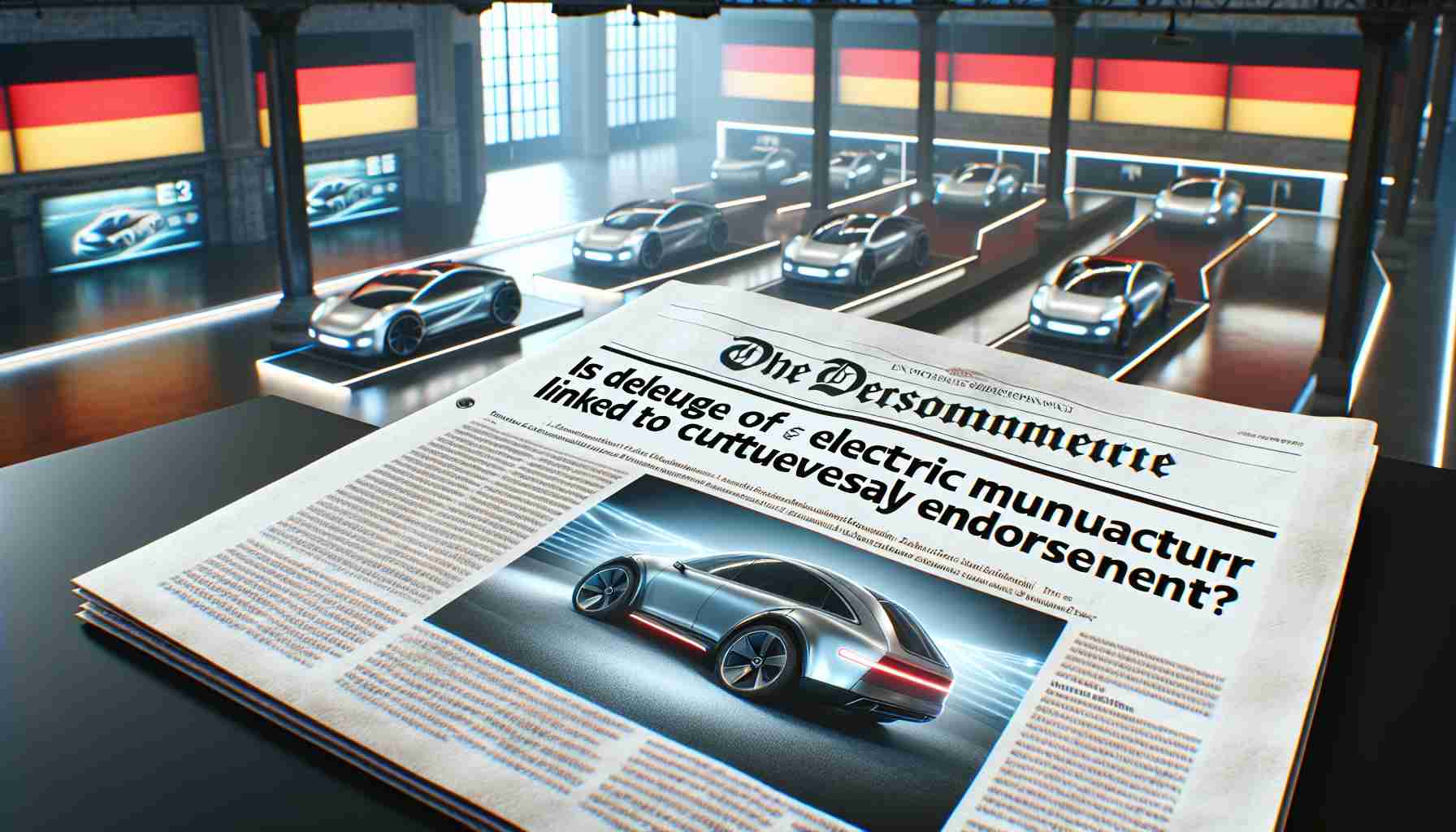- Tesla’s new registrations in Germany fell by nearly 60%, with only 1,277 vehicles registered in January.
- The decline follows Elon Musk’s controversial political comments, raising questions about their impact on consumer behavior.
- German consumers, known for their discerning tastes, may prioritize brand reputation over technology and marketing.
- Investors are concerned about the potential long-term effects of Musk’s political affiliations on Tesla’s image.
- As public sentiment shifts, brands must be cautious in managing their image intertwined with political views.
- Consumer loyalty is susceptible to external factors, including political developments and leadership statements.
Tesla’s presence in Germany took a dramatic hit last month, with new registrations plunging by nearly 60%. Official figures reveal that only 1,277 new Teslas hit the roads in January, marking a stark downturn for the electric vehicle giant.
As the dust settles from Elon Musk’s recent vocal support for the country’s far-right politics, many are left wondering: could his controversial statements be driving potential customers away? While Tesla has enjoyed a surge in popularity globally, this decline in Germany raises eyebrows and concerns about the brand’s future in one of Europe’s key markets.
Investors and auto enthusiasts alike are closely monitoring the situation, questioning whether Musk’s political affiliations will shadow the company’s innovative reputation. The German auto market, known for its discerning consumers, may not be easily swayed by flashy advertisements and cutting-edge technology alone.
This astonishing drop in sales raises a critical question: how much do a CEO’s remarks affect a brand’s image? As the automotive landscape continues to evolve, the stakes are high for Tesla to maintain its foothold.
In a world where politics often intertwine with consumer choices, Tesla’s latest sales figures could foreshadow significant shifts in public sentiment. What’s clear is that brands must navigate the complex waters of public perception with care.
As the automotive revolution marches on, one thing remains certain: consumer loyalty can be as volatile as the market itself, especially when politics come into play.
Why is Tesla’s German Market Facing a Sudden Decline?
Understanding Tesla’s Sales Drop in Germany
Tesla’s decline in new registrations in Germany by nearly 60% in January raised significant questions about the automaker’s brand perception amidst controversial political statements made by CEO Elon Musk. This fall has provoked speculation about how a CEO’s personal views can impact a company’s reputation and sales, particularly in a market known for its educated and discerning consumers.
New Insights and Features
1. Consumer Behavior Trends: Recent studies show that consumer loyalty can be heavily influenced by a company’s leadership figures. Political affiliations or controversial remarks by CEOs can lead to shifts in public perception and ultimately affect sales.
2. Market Forecast: Industry analysts predict that Tesla may continue to face challenges in Germany unless the company focuses on localizing their marketing strategies. Considering the sensitivity of the European market, particularly after Musk’s remarks, it may be necessary to adopt a more cautious and culturally aware approach.
3. Limitations in Supply Chain: Current reports indicate that Tesla is also facing supply chain challenges that have affected the availability of their vehicles in Europe. This limitation could compound the drop in registrations and requires a strategic response to mitigate further losses.
Key Questions Answered
1. How Do Elon Musk’s Statements Influence Tesla’s Market Performance?
– Elon Musk’s outspoken nature can polarize opinions, potentially dissuading consumers who disagree with his views. In Germany, where political leanings significantly affect consumer choices, this can lead to substantial sales drops, as seen recently.
2. What Are the Implications of the Sales Drop for Tesla’s Future in Germany?
– The sharp decrease in registrations suggests a need for Tesla to reassess its marketing and public relations strategies in Germany. Maintaining an image of inclusivity and aligning with the local culture will be critical for securing future sales.
3. What Strategies Can Tesla Employ to Recover Its Market Share?
– To regain market share, Tesla could enhance customer engagement through local partnerships, community initiatives, and targeted marketing campaigns. Additionally, focusing on sustainable practices and aligning with the growing demand for environmentally friendly products could help rebuild consumer trust.
Additional Takeaways
– Pros and Cons of Tesla’s Present Strategy:
– Pros: Cutting-edge technology and innovative designs.
– Cons: Vulnerable public perception influenced by CEO’s political involvement.
– Innovations on the Horizon: Tesla continues to innovate in battery technology and autonomous driving, which may attract tech-savvy consumers despite the current decline.
– Sustainability Commitment: As consumers become more environmentally conscious, enhancing transparency around sustainability practices may help Tesla win back customers.
For more information, check out: Tesla’s official website.



















